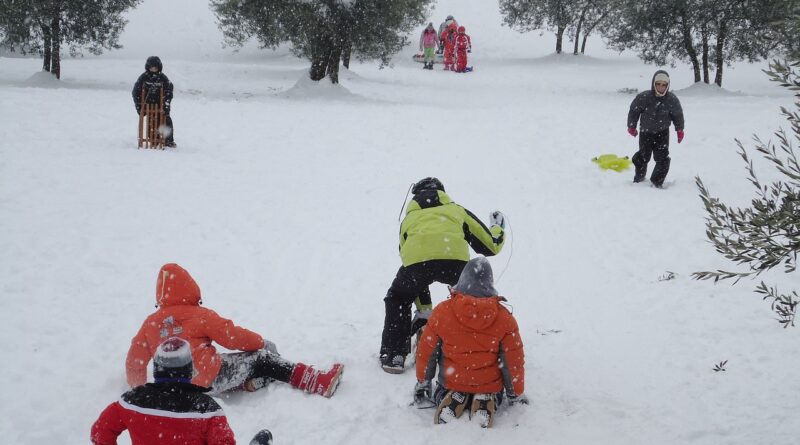Winter Precautionary Tips for Parents of Kids with Disabilities
With winter about to make its arrival, it is vital for parents of kids with disabilities to take extra precautions to ensure their little ones are as safe as can be. The colder months pose extra risks for children who have a disability, from slippery, icy surfaces and sensitivity to cold, to respiratory challenges. By taking extra cautionary measures, parents can ascertain their kids are safe, healthy, and happy all winter long.
The folks at Special Children’s Center Group Home know all too well the extra challenges that parents of kids with a disability face once winter hits. This special children center group home offers resources to help individuals with disabilities lead the most fulfilling lives possible. Below are the group home’s winter precautionary tips for parents of kids with disabilities:
Layer Clothing Carefully
While you want to ensure your child is warm and safe from frostbite, hypothermia, and other risks that the winter cold poses, it is important to prevent overheating. So choose breathable fabrics when layering. Also, for kids with sensory sensitivity, opt for fabrics that are soft, seamless, and free of tags.
Prioritize Accessibility
The winter cold can cause icy pathways, black ice on roads, and other risks. Make a concerted effort to clear ramps, driveways, and pathways of any show and ice. For an added layer of caution, use non-slip mats and traction strips to prevent slips on ice and maximize safety.
Prepare & Keep Emergency Kits In Your Car
It’s always better to be safe than sorry, especially when driving around with your little ones in snowy conditions. Keep an emergency kit in your car that includes your child’s medications, a set of warm clothes, hand warmers, nonperishable food items (peanut butter, beef jerky, etc.) and a set of batteries for any assistive devices.
Prep Mobility Aids for the Winter
If your child uses a wheelchair or other mobility aid, attach snow tires or treads. This will increase traction on snowy/icy pavement. Also, make sure to cover any electrical components of powered wheelchairs to protect against snow and moisture.
Keep Your Child Hydrated and Moisturized
Cold weather can dry out skin, which can lead to chapped hands, cracked lips, and other painful occurrences. Keep your kid’s skin and lips moisturized with a gentle, fragrance-free lotion and chapstick! Also, encourage your child to drink plenty of water to stay hydrated.
Manage Indoor Air Quality
Dry indoor air can cause respiratory issues, especially for kids who have asthma and other breathing conditions. So use a quality humidifier to prevent the indoor air from getting too dry! You can find an affordable and functional humidifier on Amazon.
Plan Out Accessible Outdoor Excursions
If your family plans to go sledding, skiing, snowshoeing, or engage in another outdoor winter activity, research wheelchair-accessible parks and trails ahead of time. This will give you peace of mind in knowing your child will be able to safely participate in the activity. Also make sure to avoid any areas that have deep snow.
Keep an Eye Out for Any Illness
Children who have a disability may struggle with communicating how they feel, so it is critical to monitor for any signs of sickness. Look out for cold/flu symptoms and any subtle signs of discomfort (itchy eyes, runny nose, etc). This precautionary measure can prevent any illness from getting a lot worse.
Use Adaptive Winter Gear
If your child has a circulation issue, heated gloves and socks can be really helpful during the colder winter months. Also, use adaptive gloves, snow boots, and outerwear to ensure they are both easy for your child to put on and comfortable.
Indoor Safety Is of Utmost Importance
The colder months mean the use of indoor heaters, fireplaces, and other heating sources. Make sure all heating solutions are inspected for safety and keep fireplaces and space heaters out of reach from children. Tracking snow indoors can also create puddles that can lead to slips and falls, so use non-slip rugs indoors for greater traction.
To Wrap It All Up
It is important for parents of a child with a disability to prepare for winter’s potential challenges. Taking the above precautions will help parents keep their child safe, warm, healthy, comfortable and happy all winter long.


An Eye-Opening Perspective
great article